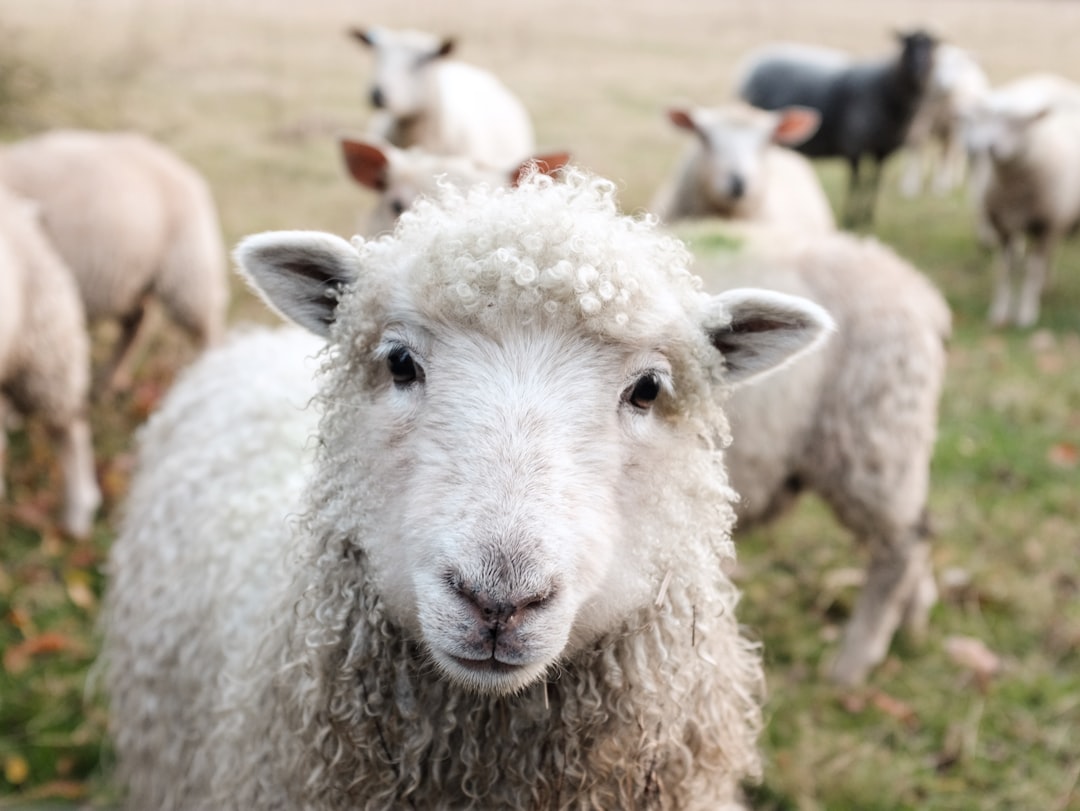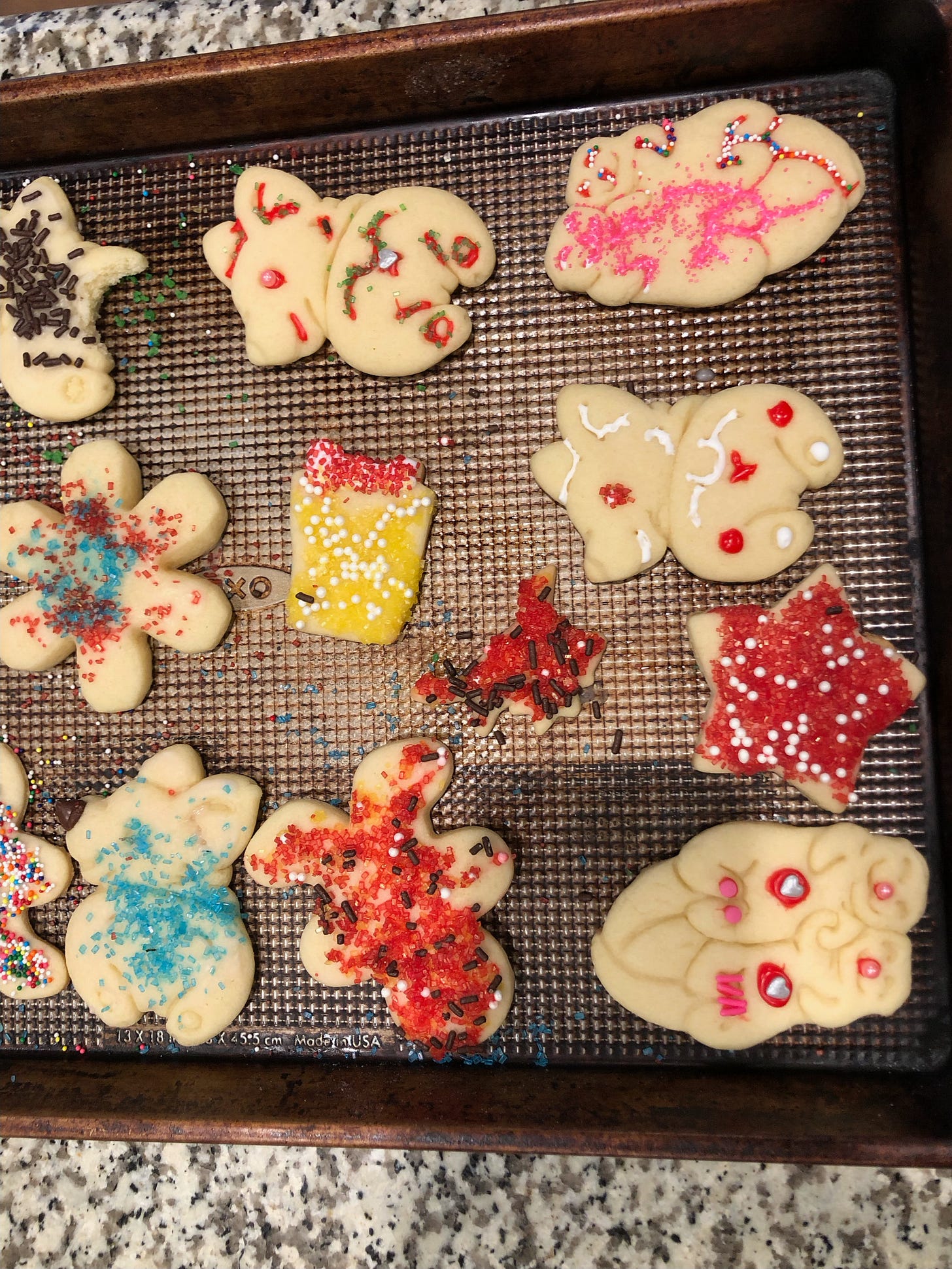A new way to think about resolutions
Or not.

Happy new year, friends!
I spent the first day of 2024 on a five-hour hike at Point Reyes. It’s the same hike I’ve been doing for years—to the ocean and back, no frills—except this time we went half a mile farther than usual and were rewarded with a magical beach waterfall.
It felt like a metaphor.
Go a little further, be a little more curious, reach a little beyond your comfort zone, and be rewarded with the sublime.
Then again, on that same hike, K got bitten by a tick and the soles of H’s hiking boots broke clean off, forcing them to journey for hours in muddy socks.
So, perhaps the sublime is relative. Or has a sense of humor.
I love a good calendar change though—any excuse for tedious self-reflection (on top of my daily journaling), witchy rituals involving burning things, and/or careful goal-planning spreadsheets abandoned three weeks later.
Even though time is arbitrary—“just a meaning that we impose on motion,” to quote Anne Carson (again) (forever)—there’s something nice about a reset, even if it’s a self-imposed fiction.

We love to make goals this time of year, and we love to break them. One stat has it that only 16% of people keep their New Year’s resolutions, which frankly seems high.
And yet, many of us also know people—and hopefully we are occasionally among them—who’ve made significant and lasting changes in their lives. They’ve given up cigarettes or booze or drugs; they’ve run marathons and published their first novels. They’ve forgiven someone they never thought they could—possibly even themselves.
So what is it that causes some people to change and others to give up?
To wit, it’s January 4th and I’ve already become disenchanted with one of my goals and want to quit. (I’m attempting a newsletter growth challenge, which I can’t even write without wanting to add the barf emoji. Plz admire my incredible fortitude :D)
Tangentially:
Costica Bradatan at Time has an interesting theory as to why we break our New Year’s goals—such resolutions are meant to fail because we want them to fail.
That we are, in fact, laughing in the face of failure, and the capitalist ideals that tell us that status and wall pilates are the keys to our salvation.
Because [New Year’s resolutions] are made half in jest, in an unguarded moment of carnivalesque freedom. For most of us, this may be the only time of the year when we can afford to mock failure, even as we mock ourselves in the process. The only time where we can take back control of our failings—or at least, feel like we do.
When viewed in the lens of this rebellious—and dare I say, generous—spirit, it’s easy to see why a lot of our resolutions fail—because status and six-packs don’t actually make us happy, and when our goals are outward, approval-seeking symbols that society values (but we don’t), then we’re not going to be all that motivated to change.
Looking back at my own failures from 2023, this checks out. Notably, I challenged myself to make 30 TikTok videos in a month, in part because I wanted to get better at making videos, but largely I was only doing it because TikTok was the “it” platform and all the media influencers told me I should “have a presence” there.
Unsurprisingly, I didn’t meet that goal. I think I made, like, 12 videos, and was miserable the whole time! Because I was doing something I thought I should be doing, instead of something I actually wanted to do.
That’s all fine and good, Anna, but if you’re not gonna tell me how to get a million Instagram followers or look hot in a bikini, then why are you even here?
(A question I ask myself everyday, while tediously journaling probably.)
But I hear you. How do we motivate ourselves to change?
One theory involves finding your why.
We’re more likely to accomplish goals that are aligned with our sense of purpose, our values, and identity. These tend to be broader and more far-reaching, like getting/staying healthy, helping others, improving our communities, or fighting injustice—but they can be specific, too.
So “look hot in a bikini” and “exercise regularly” can be two versions of a similar goal, but the latter is more likely to lead to real change because it has a more robust why.
For me, exercise has always been about avoiding a future self/body that can’t walk or do basic movements. I’ve watched my parents struggle for years with this and it’s been a potent motivator.
Other “whys” for exercise may include:
Stress management: It triggers the release of endorphins, often called "feel-good" hormones, which improve mood and alleviate stress.
Self-confidence boost: Regularly working out promotes a positive body image and builds self-esteem as you reach your fitness goals.
Mental clarity: Exercising often enhances our mental capacities by improving focus, creativity, and memory, leading to better productivity both at home and at work.
Challenge: Many are motivated by the challenges that come with exercising, such as pushing our physical limits, trying new workout routines, or meeting personal records.
Lifestyle: Some people engage in regular exercise because they see it as part of their identity and lifestyle. This intrinsic reason relates to how you perceive yourself and how you wish to present yourself to others.
Independence and control: Regular exercise allows you to take control of your own body and health, which can provide a strong sense of independence and personal resilience.
TLDR: Intrinsic motivations tend to be more sustainable since they are driven by an individual's inner values, personal growth, and self-fulfillment, rather than by external rewards or societal pressures.
In this week’s Ask Anna column, I touch on some of these ideas, and share a great video I saw on the topic of changing our lives, a la creating new habits, called, “Why It’s So Hard to Make Healthy Changes” by Kurzgesagt.
Here’s the relevant snippet:
The video explains, in very understandable terms, the science of forming new habits, and how we can better set ourselves up for success.
Those suggestions include:
Start small: Instead of suggesting a complete lifestyle overhaul, start with small changes that your husband might be more receptive to. Maybe it’s swapping potato chips for air-popped popcorn during TV nights, or taking a short neighborhood walk together after dinner.
Use triggers: Create and optimize the triggers that can set off the desired healthy behavior. These can be visual cues, like time of day, or certain familiar situations, like showering or checking the mail. For instance, you could set out workout clothes the night before as a visual reminder for fitness. You could also do 10 squats every time you go to the bathroom.
Make it enjoyable: Remember, the more enjoyable an activity is, the more likely you both are to stick with it. Find activities that you both enjoy—maybe it’s swimming, dancing, or hiking, rather than the traditional gym setting.
Consistency is key: Keep in mind that habits, good or bad, are formed over time and with consistent repetition. Patience and persistence will be your allies in this journey. And if you can only do a five-minute workout, or if you only eat one vegetable, it still counts! Anything is better than zero.
But tell me, what are your goals for the new year, if any? What do you want to learn? Achieve? Change?
~Anna
P.S. I’m attempting to learn ASL for 5 minutes a day—greatly aided by this dude’s videos (@chaadcrb) and the amount of swearing in them.
P.P.S. My big professional goal for the year is connection. I’ve been feeling lone wolfish lately—part of this is just “being a writer” but I don’t think it has to be.
posed an interesting question in her recent post (about quitting/staying on social media, another topic I’m currently obsessed with), which is:“What if we behave like the community we say we are craving?”
To that end, I’d very much appreciate it if you’d drop me a line, comment, or heart. I know that my own tendency is to scroll and lurk—it’s a hard habit to change!—but I’d love to hear from you. What’s feeding your soul these days?
(For me, it’s child-decorated sugar cookies in the shape of otters and corgi butts :)


Anna, your writing makes me smile and think. Thank you.